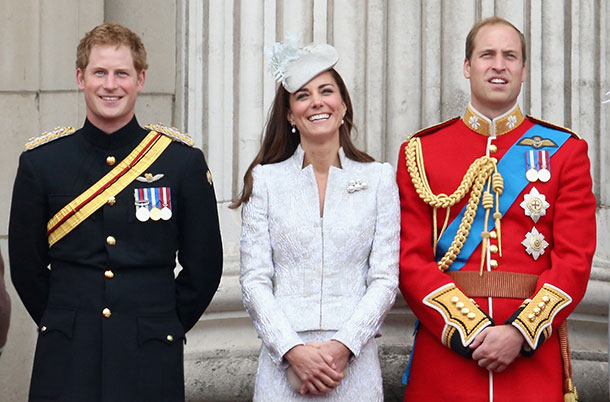
Understanding Mental Health and Mental Illness
Recently the British Royal family; Prince William, Prince Harry and Princess Kate began a campaign
to remove the stigma of seeking mental health services in time of trauma and loss.
The two Princes
shared the trauma of their mother, Princess Diana’s death on their lives and mental stability. They acknowledged that after years of struggling with the grief they experienced they finally sought support through counseling.
Their message to the world states that 1) it is appropriate and important to obtain mental health support and treatment during challenging situations to gain mental stability and functionality 2) That there should be no shame or stigma in seeking such services and support.
Everyone experience trauma and loss in their lives. Everyone grieves those losses. Children and adults who have a strong support system and are able to obtain appropriate mental health services are able to complete the grief process and create a new life in which the trauma/loss holds a place but does not dominate their lives.
Without the strong support system and appropriate mental health services children and adults struggle with the grief stages often becoming “stuck” in the stages of anger and depression (deep sadness) unable to move forward in their lives. Often they turn to drugs or alcohol to ease the pain from these unresolved losses. In some cases people develop a mental illness for which a specific diagnosis and treatment plan is required.
However, just as everyone who sees a doctor does not get cancer everyone who seeks mental health services does not acquires a mental illness. Those diagnosed with a mental illness need our prayers, love, support and understanding just as anyone with a physical illness needs the same support.
What can each of us do to help remove the stigma ad misunderstanding that surrounds mental health services and mental illness? NAMI (National Alliance on Mental Illness) suggests the following :
- Educate yourself on Mental health services and mental illness
- Learn about mental health resources in your community
- Share your knowledge and understanding with others stopping negative and inaccurate information
- Show understanding, support and compassion for those seeing mental health services or diagnosed with a mental illness
- Offer assistance to individuals and families coping with mental health and mental illness challenges
- Seek mental health services for yourself and/or your family members in times of challenges
- Model methods of maintaining positive mental health through your own daily routines and activities
- Volunteer for and/or support a Mental health organization in your community to ensure their services
are available for all community members.
“Heads Together”: We can make a difference for everyone”
Click Here for Article PDF

 Donate Today
Donate Today